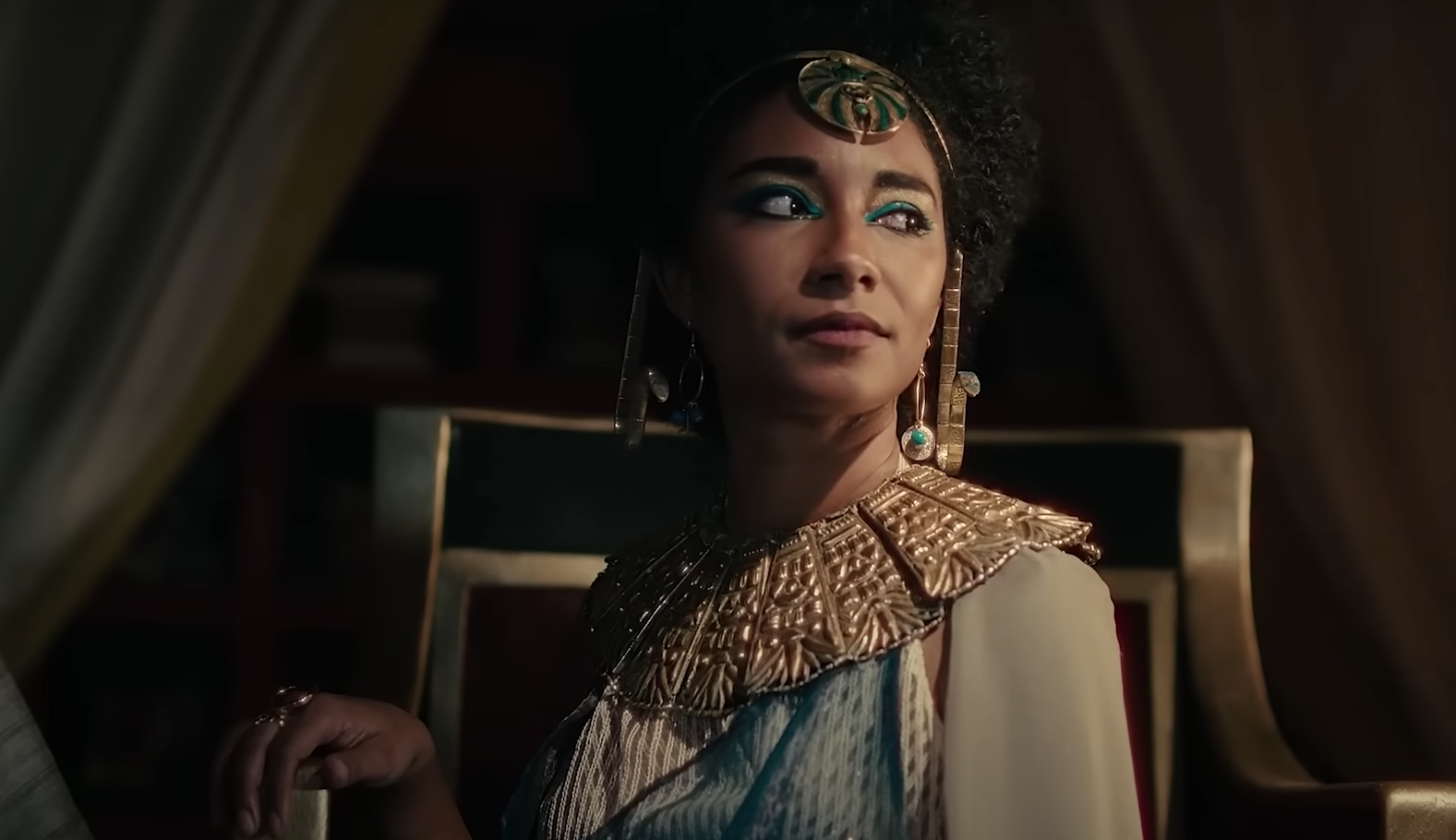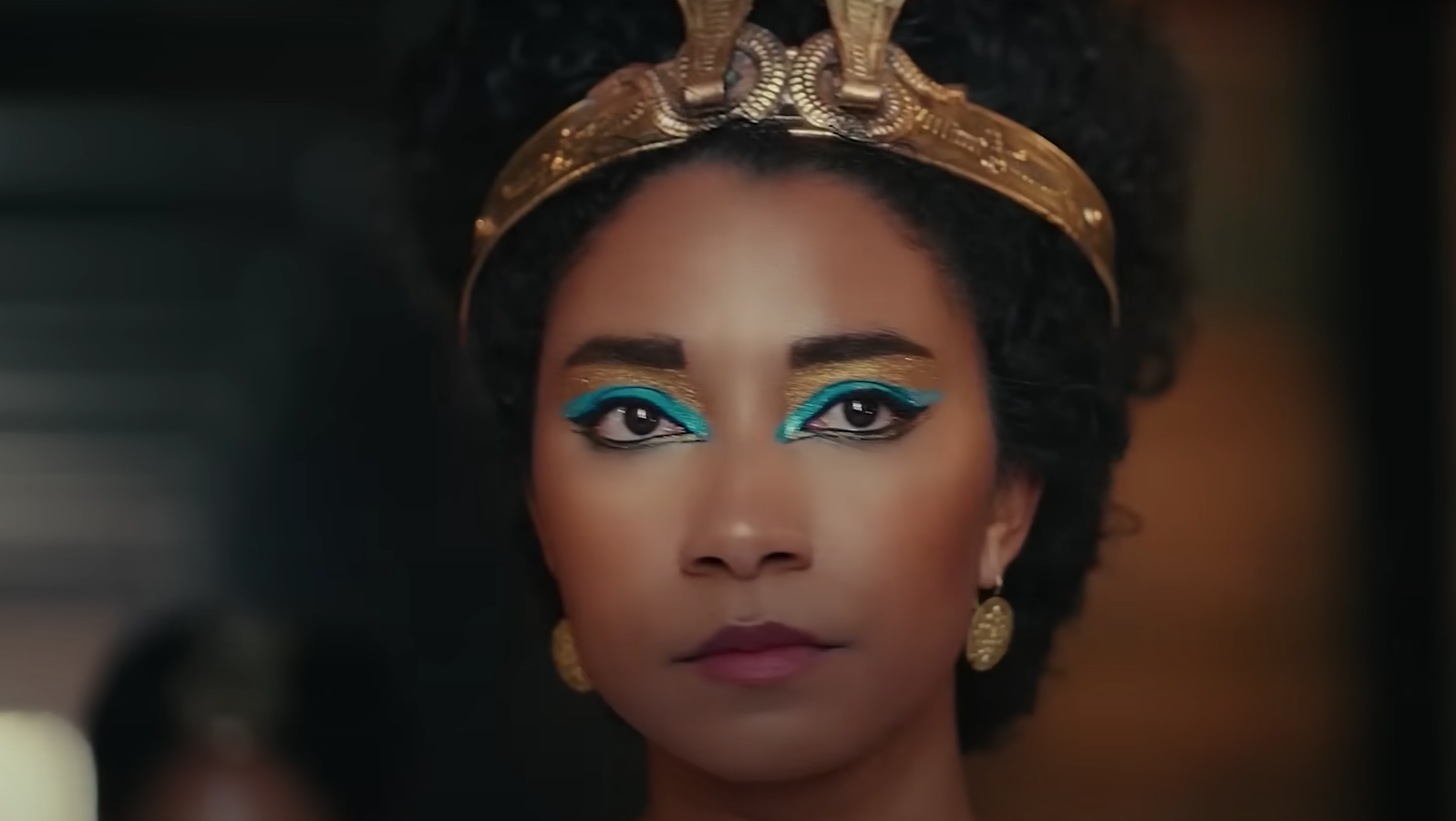Queen Cleopatra: the Netflix miniseries sparks controversy
While it will be launched worldwide on May 10 on Netflix, the series in 4 episodes Queen Cleopatra produced by Jada Pinkett Smith sparks a lively controversyespecially in Egypt. In fact, for the first time on the screen, the famous Cleopatra will be played by a black actress, the African-American Adele James.
The controversy is all the greater as the miniseries is described as a “docu fiction” thus mixing the historical interventions and reconstruction images. The show will follow the ascension of the queen of Egypt, between the year 51 and the year 30 BC, until her suicide.

If Cleopatra’s physical appearance has never been defined by historians, she has always been represented in films by white actresses, such as Elizabeth Taylor or Monica Bellucci.
Towards a ban in Egypt?
However, this casting choice of an African-American actress is not unanimous, far from it. In Egypt, voices have been raised against the Netflix series to ban it. Thus, in an interview given daily independent Egyptlawyer Mahmoud al-Semary announced he had launched legal action against the streaming giant to prevent the broadcast of the series in Egypt:
Much of what Netflix shows does not conform to Islamic values and principles of Egyptian society
he said, accusing the platform of “tampering with history”. He too wishes ban the broadcast of the series in his country “to preserve Egyptian national and cultural identity among Egyptians around the world and to consolidate the spirit of belonging to the motherland”.
Also for the Egypt Independent newspaper, the archaeologist Zahi Hawass, former Minister of AntiquitiesShe said :
Netflix tries to confuse people by spreading false information that the origin of Egyptian civilization is black (…) Cleopatra was Greek, which means she was blonde, not black.
The director reacts to the controversy
In the face of this vast controversy that affects Many countriesin East as in West, director Tina Gharavi reacted in a forum posted on variety. She mentions for the first time that Cleopatra, separated by eight generations from her Ptolemaic ancestors, “had little chance of being white”:
After 300 years, it can easily be said that Cleopatra was Egyptian. She was no more Greek or Macedonian than Rita Wilson or Jennifer Aniston (…) to me people’s idea of Cleopatra was totally wrong. Why can’t she be mixed? Why do people need her to be white?
Tina Gharavi then mentioned controversy which started as soon as the miniseries was filmed. And she replied to her detractors:
During filming, I was subjected to a vicious online smear campaign. The Egyptians accused me of “whitewashing” and “stealing” their history. Some have even threatened to destroy my career (…) which is very funny knowing that I already know how to do it very well myself.
Was Cleopatra black? We can’t be 100% sure, but we know she wasn’t white like Elizabeth Taylor. We must challenge the white supremacy that Hollywood has imposed on us and indoctrinated us with… Black misogyny exists and affects us all. We must free our imagination and accept to create a world where we are not afraid to explore the complexity of the representations of our historical figures.
I am proud to have created this series with this team. 2000 years ago an amazing woman ruled. I would like to draw a parallel between you and the women of the Arab world who are fighting against authoritarian regimes. It has never been more important to have female leaders, black or white.
Source: Cine Serie
Ray Ortiz is a journalist at Gossipify, known for his coverage of trending news and current events. He is committed to providing readers with accurate and unbiased reporting, and is respected for his ability to keep readers informed on the latest news and issues.









